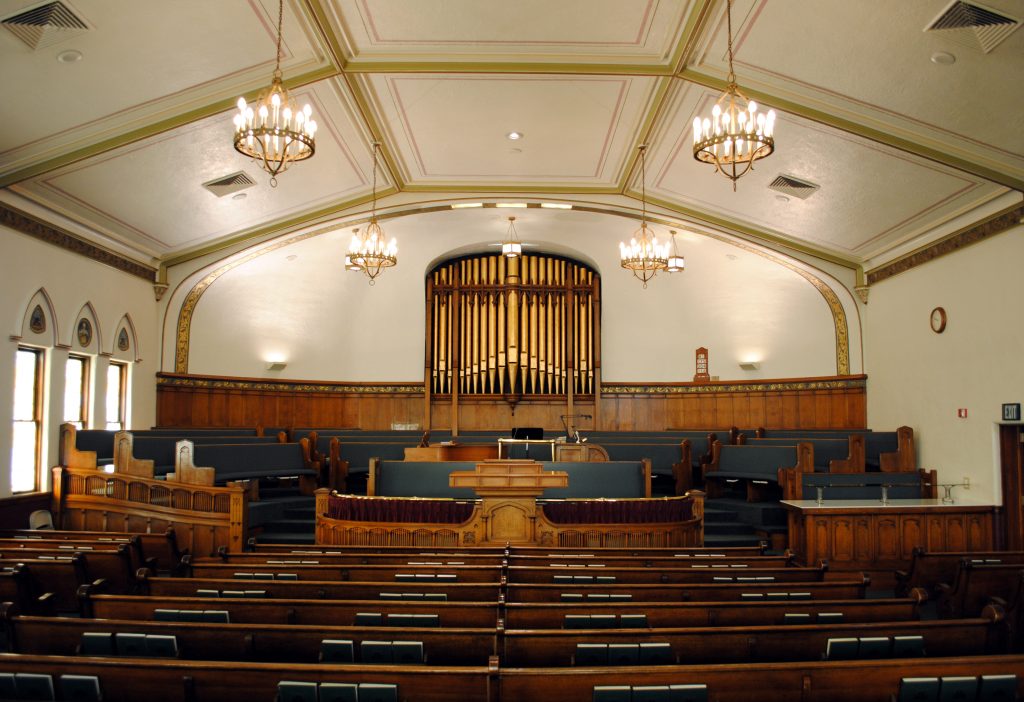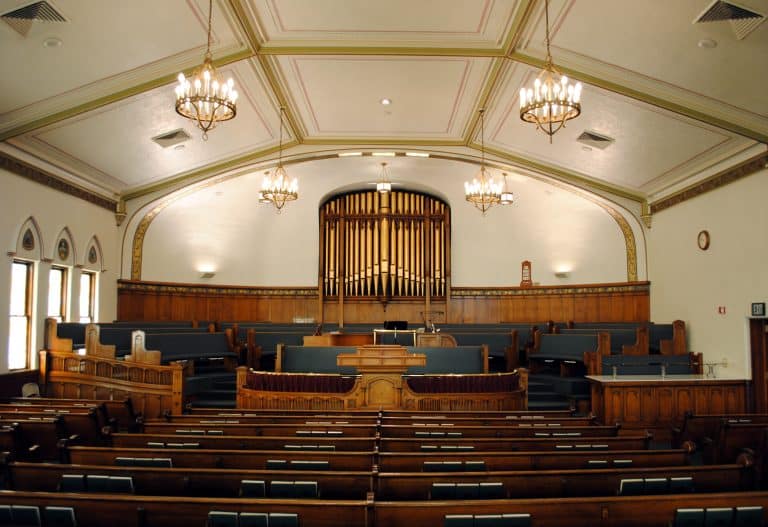For Easter Sunday, I wanted to bring along a friend who also used a wheelchair. Unfortunately, I quickly realized my chapel was completely inaccessible. There were no bathroom stalls, accessible doors, places to sit, or a way to get to the pulpit. As a wheelchair user myself, I know how much to dehydrate myself, so I don’t need to go to the bathroom in church, but I wasn’t willing to tell my friend to risk her health. I wanted her to feel welcome and accepted. But without saying a word, the church bans disabled individuals from worshiping. Many times I have felt unwelcome in my own church.

In Mormon culture, disabled people are outliers because the culture assumes a homogeneous society. People are not easily integrated into a society where worldly perfection is a goal. I yearn for the moment when not every head will turn and give a blank stare to members that do not contribute to the false homogeneity. Ableism, or the prejudice that disabled people are inherently less than an abled-bodied person is rampant in the world, and Mormon culture is not exempt from it.
I also think there may be fewer disabled church-goers by choice. The above story gives a small glimpse into what disabled members must worry about as they attend their religious meetings. Religious entities are completely exempt from the Americans with Disabilities Act, a law that provides human rights to those with disabilities. This makes no sense to me. Shouldn’t a church teaching love and morality be the paramount providers in equal access?
For instance, Latter-day Saints declare that the temple of God is the one place where we are alike, and all worldly attributes are gone in pursuit of total equality. We all wear plain white clothing to signify that no one is above another. Unfortunately, for a long time I did not feel this in the temple. I could not automatically blend in with a white dress. I was startling different. I was not equal to those in the temple because I bring a wheelchair, and many times I was publicly harassed in the temple because of it. I no longer feel burdened by the fact that people still treat me as lesser in the temple, as I now realize that sitting down does not make you less of a person. Now, when I go to the temple, I hope that my presence gives an insight into the disabled community. I know my worth does not ride the ableism that is ingrained into the minds of members and society.
While physical changes make a difference and are easy to write about for the abled-bodied population, social changes at church as much more impactful for the disability community in the long run. I have thought of a few easy and free things that I think would help the disability community feel more at home.
- Let disabled people speak for themselves. Don’t assume things such as they can’t to go to college, have a child, serve a mission, be a Relief Society teacher, or be a real participant in church meetings.
- Don’t think your experiences make you the expert on someone else’s disability. “I had faith and I was healed; you just need to believe.” “I got over my mental illness with gratitude so you can too.”
- Don’t assume only wheelchair users/people with noticeable physical differences count as a disability. There are many invisible disabilities, and you should treat all people equally regardless of whether you know of their disability.
- Don’t pity disabled members. Do not relentlessly serve disabled members but not allow them to serve you. Recognize them as a person, not a charity case.
- Don’t tote harmful beliefs that priesthood blessings, essential oils, or praying will heal us.
- Don’t buy into the myth that disabled individuals are one-dimensional inspirations, put in church for you to help you feel like your life isn’t so bad. This is exploitation of disabled people’s bodies.
- Don’t be shocked when a disabled person has talent and can do the same things as you. This is patronizing, they are people too.
These will make a huge difference in the disability community. We do not need to be pitied; we need to be listened to. Disabled individuals are a huge positive in society, creating space for diversity and different perspectives.
Many disabled members, including myself, have rejoiced at the recent changes to the two-hour meeting schedule as a matter of health, not convenience. I also, am excited to see the Church slowly realize it should be welcoming to disabled members, by using universal design on many of the new church buildings that I have seen. While physical changes are needed to provide safe spaces, I am more concerned with changing the societal perspectives. When we truly realize that disability and neurodiversity are assets to our community, we will create space for our friends. We have a long way to go. For further reading on how to make your sacred space more accessible see That All May Worship- An Interfaith Welcome to People with Disabilities.
(View Kendra’s current project, The Equal Access and Disability Rights Commission at EqualAccessCommission.org. The goal of the commission is to advocate for equality in higher education for those with disabilities. She welcomes you to view the research and find out more about how to help.)
Kendra is working with The Exponent to run a series on disabilities and the Church, which will run September 16th to September 20th. In the spirit of Exponent II, we invite women to share their personal experiences with disability. What is your role as a daughter of God and as a member of the Church? How does your disability enrich those roles? What experiences have you had that you wish your sisters and brothers in your ward community understand? What topics can you educate our community about?
Please submit your guest posts at [email protected] with a title, short 2-sentence bio about you, and your post. We also need a Creative Commons licensed image, and we’re happy to help you with that or please include the picture in the email.



